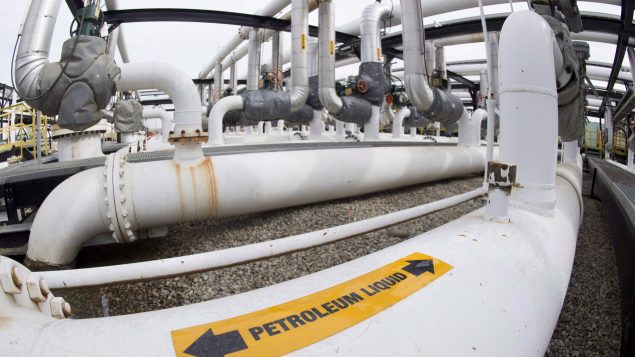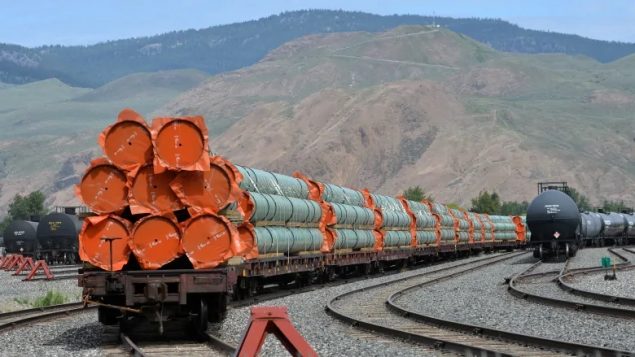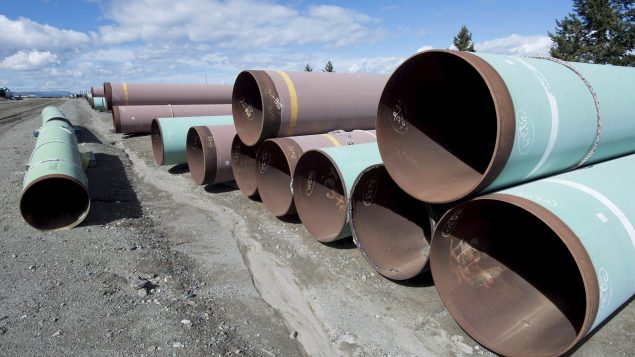Federal Finance Minister Bill Morneau is denying suggestions by the Parliamentary Budget Officer that the Liberal government may have paid too much to acquire the Trans Mountain Pipeline (TMP) and Trans Mountain Expansion Project (TMEP).
The report by the independent parliamentary officer released Thursday estimates that the Trans Mountain Pipeline and the controversial project to nearly triple its capacity have a value of between $3.6 billion and $4.6 billion.
In May 2018, Morneau announced the federal government paid $4.5 billion to purchase the pipeline that runs from northern Alberta to British Columbia’s Pacific Coast in a desperate attempt to salvage the project.
The expansion of the 1,150-kilometre pipeline that currently carries about 300,000 barrels of oil per day from northern Alberta to the oil terminal in Burnaby, a suburb of Vancouver, is seen as critical for Alberta’s and Canada’s economy but has run into stiff opposition from Indigenous and environmental groups, as well as the B.C. government.
‘They paid the sticker price’

Pipes are seen at the Kinder Morgan Trans Mountain facility in Edmonton, Thursday, April 6, 2017. (Jonathan Hayward/THE CANADIAN PRESS)
The PBO report said the Trudeau government negotiated a purchase price at the higher end of its valuation range.
“If it was a car, we would say they paid sticker price, they didn’t negotiate very much, they didn’t get that many deals or manufacturers rebates — quite the opposite,” Parliamentary Budget Officer Yves Giroux told reporters Thursday morning at a press briefing.
“It’s a very risky project to have bought something that nobody else in the private sector wanted to acquire.”
But speaking to reporters in Ottawa Thursday, Morneau said the net price paid by the feds was $4.1 billion, not $4.5 billion as announced last May.
“In fact, the purchase price was $4.5 billion less the amount of tax advantage, which brings it to $4.1 billion,” Morneau said. “That means we paid $4.1 billion net for the Trans Mountain pipeline and the expansion.”
That’s right in the middle of the range that the PBO analysis calculated, he said.
ListenProject delays

A load of pipe originally destined for the Trans Mountain pipeline sits idle on a Kamloops B.C. rail siding. (Dennis Owen/Reuters)
The PBO report also warned of a financial hit the government and Canadian taxpayers will take if the pipeline construction is delayed or cancelled.
“The worst case scenario is that the Trans Mountain expansion project doesn’t see the light of day, and then the value of the asset that the government has acquired is diminished significantly and the government could lose anywhere between $2-2.5 billion in that worst case scenario,” Giroux said.
B.C. Premier John Horgan has sought to stop the expansion project in court, forcing Ottawa to step in and buy the project.
Indigenous groups have said they were not adequately consulted by the federal government before the Liberal government of Prime Minister Justin Trudeau approved it in 2016.
In August 2018, the Federal Court of Appeal quashed cabinet approvals for the project, citing inadequate consultations and incomplete environmental assessments.
“We believe that it’s important that we respond appropriately to the Federal Court of Appeal decision,” Morneau said. “That’s what we are working through right now in order to make sure that we do this the right way to move forward.”
The government sees a significant commercial advantage in the purchase of the pipeline and the expansion project, which would allow Canada to get its oil to international markets where they can fetch a better price as opposed to being dependent on the U.S. market where Canadian crude is sold at a discount, Morneau said.
Giroux acknowledged that should the pipeline be built, there will be some positive tradeoffs for the Canadian economy.
“Should this get built it will be a relief for the oil sector in Alberta because it will accelerate the opening of markets for Canadian oil,” Giroux said.
“So there are, financially speaking, lots of tradeoffs to be had and, financially speaking again, lots of risks.”
With files from John Paul Tasker of CBC News







For reasons beyond our control, and for an undetermined period of time, our comment section is now closed. However, our social networks remain open to your contributions.